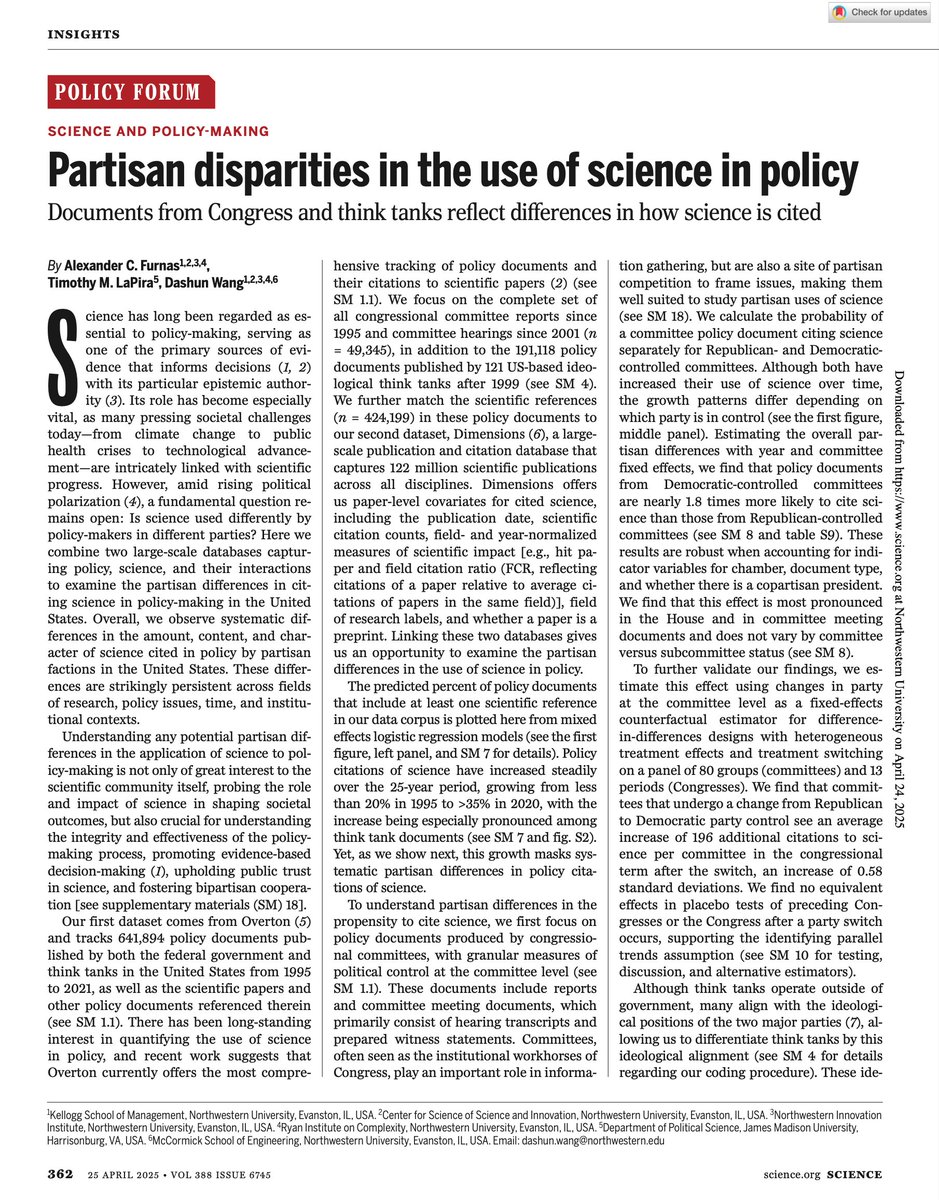
Ron Fischer
@ronald_fischer
Behavioural scientist fascinated by the big problems in life and how to tackle them
ID: 252153159
14-02-2011 16:10:41
2,2K Tweet
1,1K Followers
737 Following

🚨 Our latest paper is out today in Science! We uncover stark and systematic partisan differences in the amount, content, and character of science used in policy, which mirror differences in political elites’ trust in science. Four years in the making. Led by Zander Furnas 1/n













